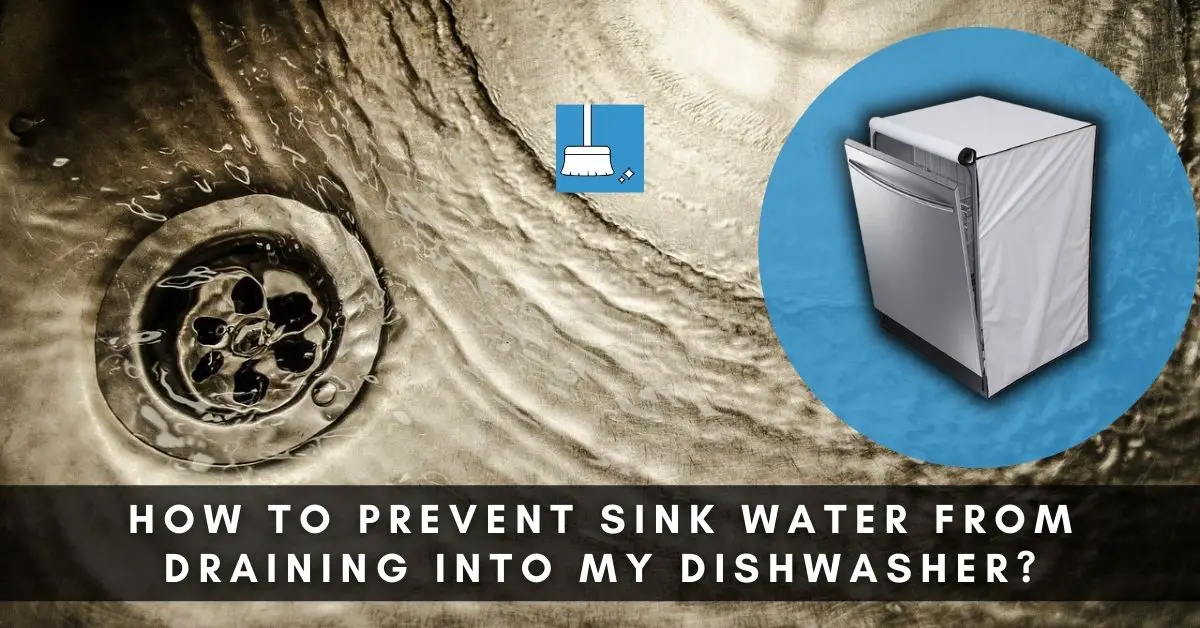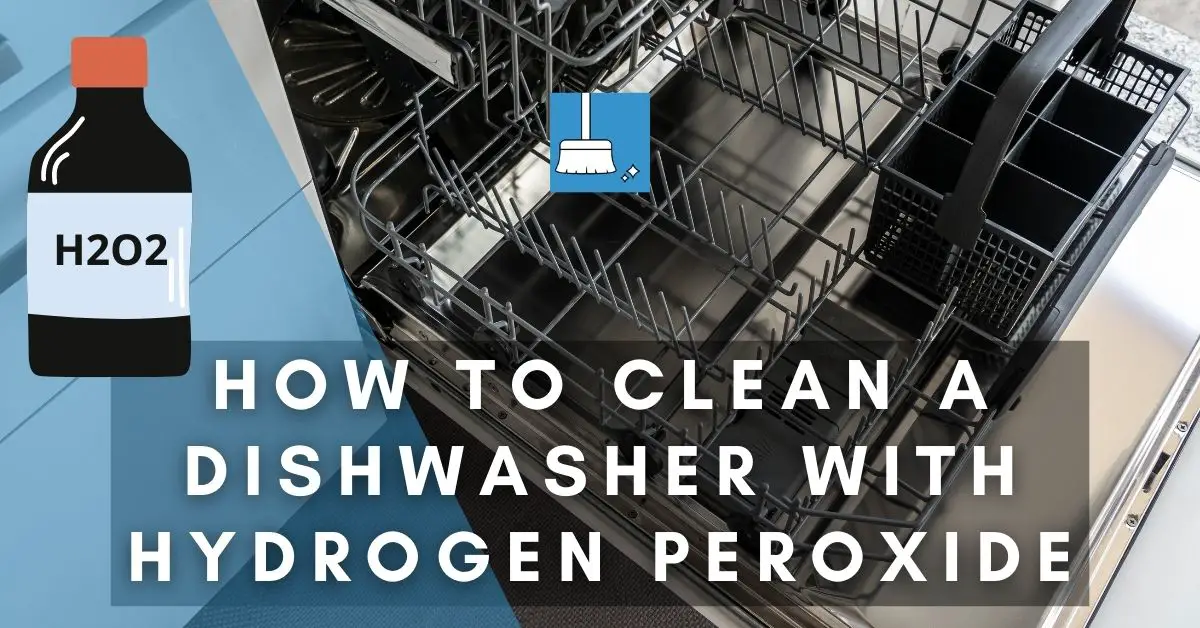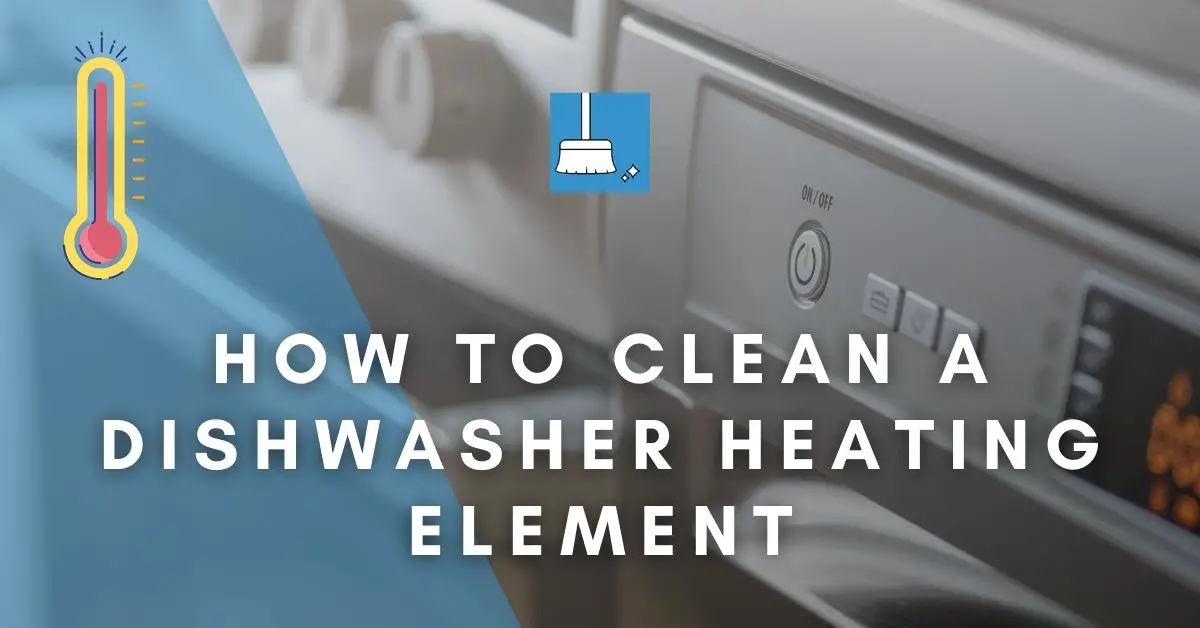How gross, disturbing, and stressing can it be to discover that the cause of the oozing smell emanating from your dishwasher is a result of your sink water redirecting into your dishwasher. How frustrating this can be.
This problem can be avoidable when you can identify how it occurs. The best and only solution is to re-install the pipes when faced with this situation.
This article explains all that you need to understand about the cause of sink water draining into the dishwasher, guiding you on how to deal with this situation and prevent it.
How to Prevent Sink Water From Draining Into The Dishwasher?
The issue of sink water draining into dishwashers boils down to a piping problem, and more often than not, an oversight causes it during installation.
Individuals do not take this problem likely because sink water draining back into one’s dishwasher is a significant health risk.
Ways to Prevent Sink Water from Draining into the Dishwasher
1- Ensure That the Drainpipe Is Never Clogged
One scalable tip to guarantee that you never experience the problem of your sink water draining back into your dishwasher is always to keep your drainpipe free from debris.
Your drain pipe experiences blockage, often as a result of pouring too many grains and other food items and waste that is not meant to be inside it through the sink.
And when water is poured down the sink, the liquid would only flow into the accessible pathway, especially when there’s one available.
In essence, when your drainpipe is clogged, and you pass liquid down the sink, it would only find its way through the free path, which is your dishwasher pipe, and would lead right back into the machine.
2- Have Your Dishwasher Set-up Done by an Expert
We cannot talk about this topic without making reference to a critical causative factor: an improper installation.
When an installation issue is a problem, what that means, more often than not, is that the drainpipe of the machine is placed too low or the water pressure has shifted it downwards, making it hang under the sink pipe.
As it should be, the drain loop of the dishwasher should be placed higher.
But an improper set-up problem would invariably lead to the liquid that passes through the sink to find a pathway into the can only be avoided when an expert plumber is called upon to do the piping from the very beginning because when a fault like this arises, you would eventually need to call an expert to help out.
So, why put your health at risk when you can always prevent it?
Why Is Sink Water Draining Into My Dishwasher?
1- A Clogged Drain
Sometimes we are guilty of pouring unfit substances down the drain like eggshells, seeds, and grease, to mention a few.
And the after-effect of continuously doing this is that you eventually force the drainpipe to get blocked and halt the free passage of water.
We know that water would either stay static or find its way, especially when there is a way –the dishwasher’s drain pipe.
So, when the sink’s drain line is clogged, water from the sink undoubtedly finds its way into the dishwasher’s pipe.
Many dishwashers will indicate a problem by beeping.
2- The Dishwasher Drain Hose Is Low
A proper installation of the dishwasher’s hose involves it being raised and attached right below the sink itself and above the sink’s drainpipe to avoid the water that is being poured down the sink from slipping into the dishwasher’s drain line.
When the drain hose is low, water will find its way into the hose.
Solution: If you discover that the problem is with the position of the dishwasher’s drain hose hanging low, then the best thing to raise the hose, but since we do not want a once-and-for-all solution, then it is best to call a professional to help attach the dishwasher’s hose higher and exactly where it should be.
3- Unclogging the Sink Drain Pipe through Plunging
Plunging is an effective way to relieve your sink’s drain line when blocked. However, if you are not careful, this solution to a sink’s problem would develop another problem for the dishwasher.
The process of plunging through the sink’s drainpipe can impact the dishwasher drain line since they are both in close proximity, thereby leading to dirty water spilling or flowing into the dishwasher.
Solution: Before you begin plunging through the sink’s drain line, the first thing you must do is to have the dishwasher’s hose clamped. This way, you can be assured that the dirty water will not be able to find its way into the dishwasher’s drain while you are at work.
Caution: Do not use a plunger to unclog a dishwasher as it can harm the drain hole.
Can I Run My Dishwasher If My Sink Is Blocked?
It depends on what is causing the blockage. If the cause of the inability of water to pass through the sinkholes is because there is something blocking the holes directly, then you can still run the dishwasher because their activities do not affect each other.
You can stop the blockage by removing whatsoever is causing the blockage.
Nevertheless, the only way the sink’s blockage can affect the running of the dishwasher is when there is a clog in the drain line.
Due to the fact that the sink and the dishwasher share the same drain line, a blockage caused by waste poured into the sink or from the dishwasher would have an impact on the outflow of water from the dishwasher when in service.
At this point, you shouldn’t run the dishwasher when your sink is blocked as a result of the clogged drain line.
Doing this would only put pressure on the sink and cause water to back up into the sink or even the dishwasher, exacerbating the mess.
Can Dishwasher Back-Up Water Into The Sink?
As much as we are considering the sink water getting redirected back to the dishwasher, it is pertinent to know that this can also go the other way around.
Yes, the dishwasher can cause water to flow back to the sink drain hose and to the extent that the sink can get filled up with water, which can be really unpleasant, just as the sink water can flow into the dishwasher.
Why Does The Dishwasher Water Flow Into The Sink?
1- The Dishwasher and the Sink’s Drain Line Are Blocked
A clog often causes a wrong flow of water. Due to the dishwasher and the sink sharing the same drain line, whenever a clog happens, it affects the pathway of the water.
With the drain being blocked by debris, grease, or even detergent residue, whenever you run your machine, the water does not find a way and stands still, and depending on the amount of water being discharged, the water would begin to flow upwards, leading into the sink and staying stuck until there is a release below.
Solution: Call on a plumber for help. However, if your pipes can be unscrewed and if you can handle them, begin by switching off the dishwasher.
Get a big bucket and place it beneath your sink while you unscrew the pipes. This way, you can have the water stuck in the sink and drain line pouring out into the bucket while you are able to get the clog out of the pipes.
Another method to employ is to use a bowl to scoop the water in the sink into a bucket and when the water has been leveled, you can place the bucket under the drain while you unscrew the pipes and let the water out.
2- The Air Gap Is Clogged
The air gap is installed between the sink and dishwasher and it is designed to serve the purpose of separating the dirty water from the clean water and ensuring they flow into where they are meant to be for both the sink and the dishwasher.
However, when the air gap is clogged, water can make it back to the sink or there would be a spill from the air gap itself whenever the dishwasher is in use.
Solution: Call on a professional plumber to help uninstall the air plug and remove the blockage and if need be, install a new one.
Garbage Disposal Running Into The Dishwasher?
The garbage disposal is designed to help the break down of food bits from the dishwasher, making it easy for the food substance to flow out as liquid into the drainpipe without any form of blockage.
But surprisingly, dishwasher owners have reported situations whereby the garbage disposal throws up food waste and dish soap back into the dishwasher when switched on.
Why does Garbage Disposal Run Into The Dishwasher?
1- Improper Installation
When the outlet meant to transfer liquid from the garbage disposal into the sink’s drainpipe still has its plug in it, due to an oversight from the plumber, that particular outlet would be blocked and its purpose is defeated.
This way, when the dishwasher sends in waste, it would flow back in.
Solution: Call an expert plumber to help uninstall the garbage disposal and have the plug removed, freeing the pathway of the outlet.
2- Blockage
The garbage disposal is not designed to handle certain food materials and non-food materials, and letting them into the garbage disposal would only give the device a difficult time processing them and eventually have the blades stuck.
Being oblivious of this, an attempt to keep running the garbage disposal would only have a lot of food waste and dish soap water moving upwards, right into the dishwasher.
Solution: Call on the services of a professional plumber. And if you have the ability to fix the garbage disposal, begin by switching off the garbage disposal and the power source connected to it.
Then, use a flashlight to look into the garbage disposal for the cause of the blockage. Next, take a plier and use it to get the obstruction out of the disposal.
With that done, apply the plunger through the garbage disposal drain to let out the water and if your garbage disposal is designed with an Allen wrench space, insert it below the device and begin to roll the blades in a clockwise manner.
Then, you can turn on the device and the dishwasher to test-run the device.
Final Thoughts!
Dishwasher and sink problems can be frustrating, but understanding the common root causes can make it easier to tackle the issue.
In this article, we have looked into the common causes of sink water draining into the dishwasher and vice-versa, how to prevent it and how to tackle such a situation.
It is important to always call on the services of a professional to help get the job perfectly done.






Pingback: Dishwasher Detergent Blocking Drain (What To Do?) »